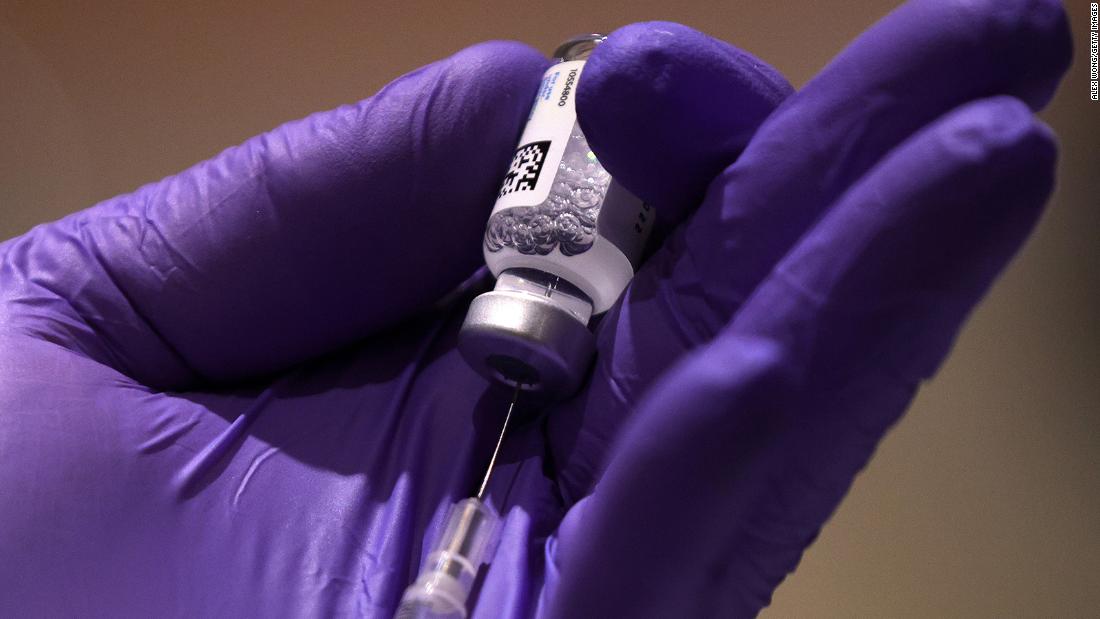“For me, I think the vaccine should win,” added Jha. “Here’s the big but: what Texas, Mississippi and other states are doing to relax and get rid of mask orders and act like everything is back to normal, this is definitely lagging behind in the variants.”
Governors in Texas and Mississippi are among at least a dozen state leaders who have eased restrictions this month – many crediting the improvement in Covid-19 numbers and the increase in vaccinations.
New cases are still generally declining in the U.S. and experts say more sustained data – at least a few weeks – is usually needed to spot a trend. But with multiple worrying variants circulating in the country, detecting early warning signs may be the key to limiting continued spread.
USA creating ‘perfect storm’ scenario for propagating variants
There are several variants that are of concern to specialists at the moment.
But there is one that is “in the front and in the center,” said Dr. Michael Osterholm, director of the Center for Infectious Disease Research and Policy at the University of Minnesota.
It is variant B.1.1.7, which was first detected in the United Kingdom and is now expected to become the dominant variant in the United States in just a few weeks, according to the CDC.
“Our current models … project that in late March, early April, B.1.1.7 will be the dominant variant,” said CDC director Dr. Rochelle Walensky on Monday.
There were at least 4,690 cases of the variant reported in the United States – and this probably does not represent the total number of cases across the country, but only those that were found by scientists who analyzed positive samples. The variant has been detected in at least 48 states, Puerto Rico and Washington, DC.
“I think the next few weeks will be about B.1.1.7 and the race we have between the vaccine and the variant,” said Osterholm. “Loosening up as we are now … we are creating a perfect storm scenario for this virus to spread.”
Different approaches to St. Patrick’s Day
Some Irish pubs in New Orleans have announced that they will not open for the celebrations, citing concerns about the spread of Covid-19 and restrictions on business.
Irish pub Finn McCool’s, located in the Mid-City area, wrote on Facebook on Monday that the crowds “would not allow us to comply with state and municipal rules”.
“As much as we loved being open and seeing everyone’s faces, that would put not only our team, but the community at risk,” the post said.
New Orleans officials eased restrictions further last week, allowing retail stores, restaurants, salons and other businesses to increase to 75% of capacity. Bars, breweries, gyms and other locations can now operate at 50% capacity.
Meanwhile, in Georgia, the mayor of Savannah Van Johnson said on Tuesday that the city is open, while urging Covid-19 mitigation efforts to be continued.
“It is important to note that Savannah is completely open. We have been very open. And the way we keep ourselves open is by requiring the use of masks,” said the mayor, stressing the importance of St. Patrick’s Day celebrations for the local economy.
Despite the pandemic and a masked mandate issued by the city, thousands of residents and tourists, some without masks and many not socially distant, packed the city’s streets and businesses over the weekend.
All states vaccinated at least 10% of adults
Among the country’s population aged 65 and over, more than a third are fully vaccinated and nearly two-thirds have received at least one dose of the Covid-19 vaccine.
In addition, all states have fully vaccinated at least 10% of their adult population.
But while vaccinations have accelerated, the challenges – including hesitation and misinformation about the vaccine – remain.
And the church can play a leading role in boosting confidence in the Covid-19 vaccine, said the director of the National Institute of Health, Dr. Francis Collins, on Tuesday.
“Many of those who could benefit the most, because they are at the greatest risk of serious and even fatal infections, are still holding back,” said Collins, speaking at Washington National Cathedral, where religious leaders gathered to help boost confidence in the vaccine. .
“Today, all of you are putting hope into action,” he said. “Hope for an end to Covid-19’s terrible suffering and loss of life, hope for an end to the economic devastation it has caused, I hope the vaccine can not only protect you, but also – if we do it together – – your family, your friends, your community, your nation, your entire world. ”
CNN’s Deidre McPhillips, Jamiel Lynch, Gregory Lemos, Gisela Crespo and Michael Nedelman contributed to this report.
